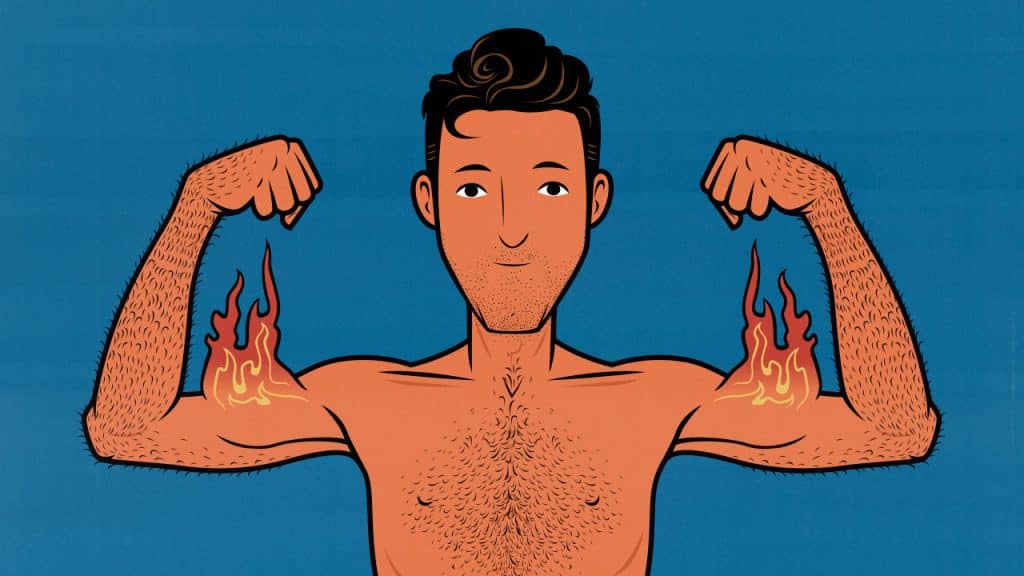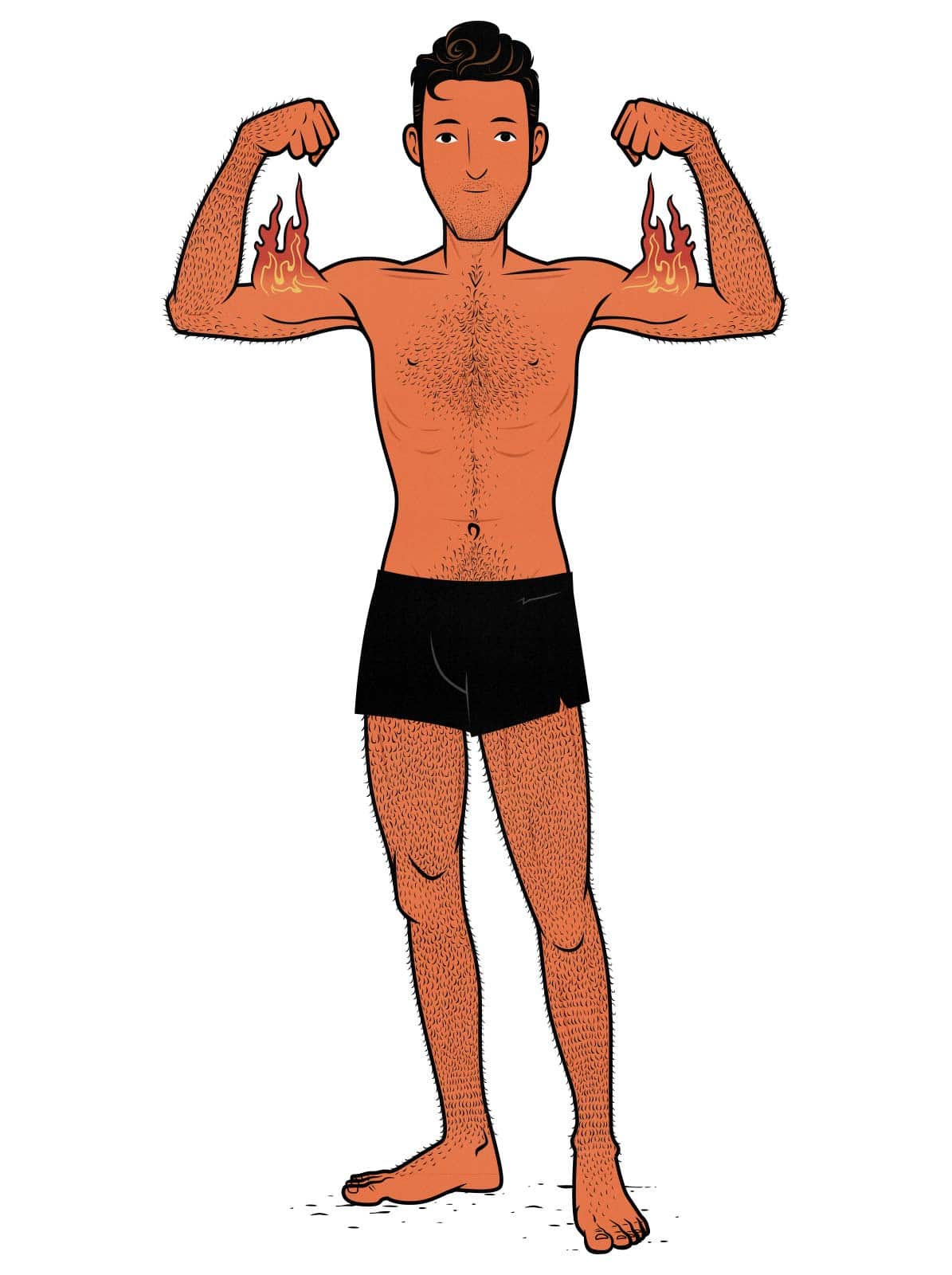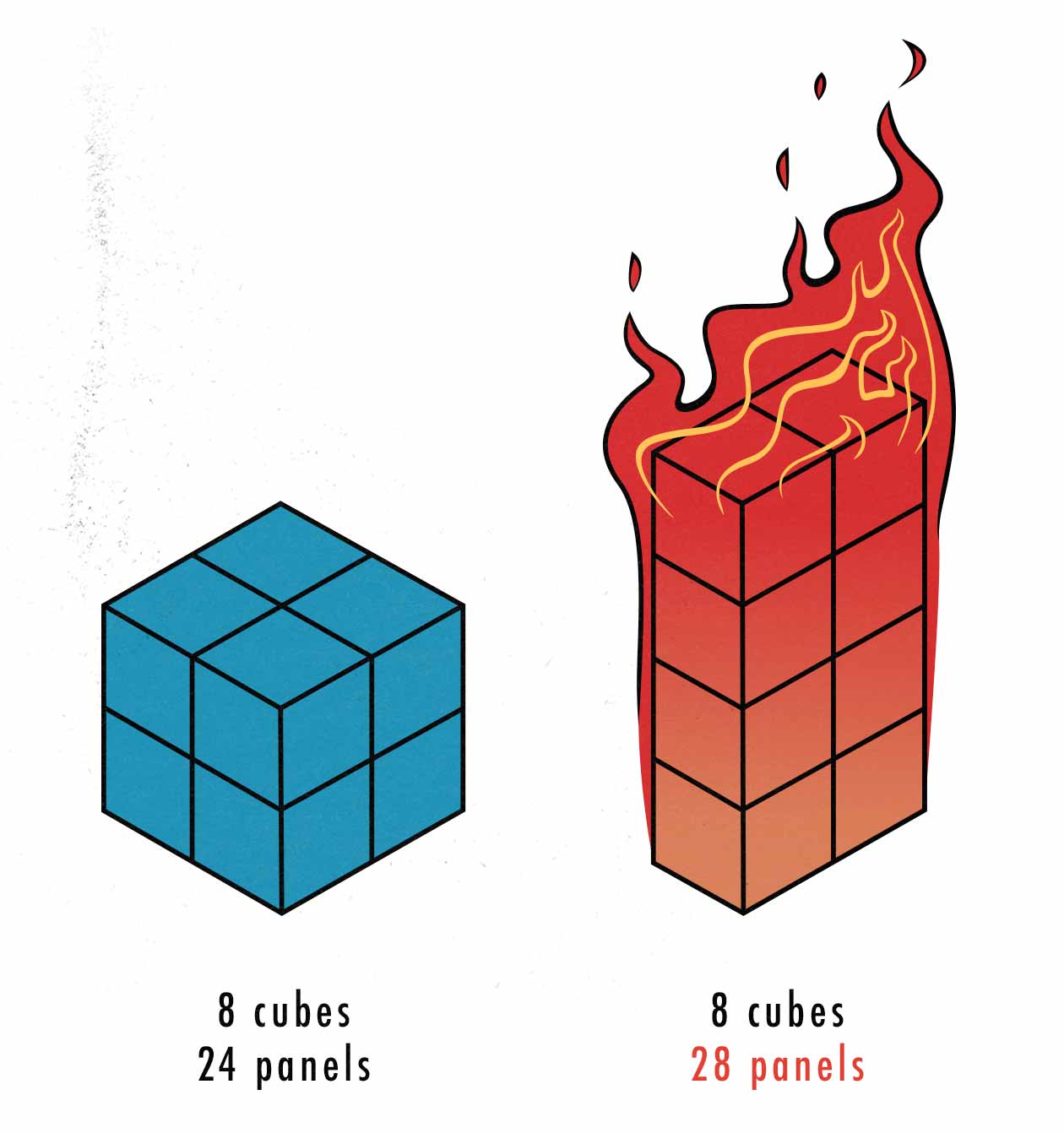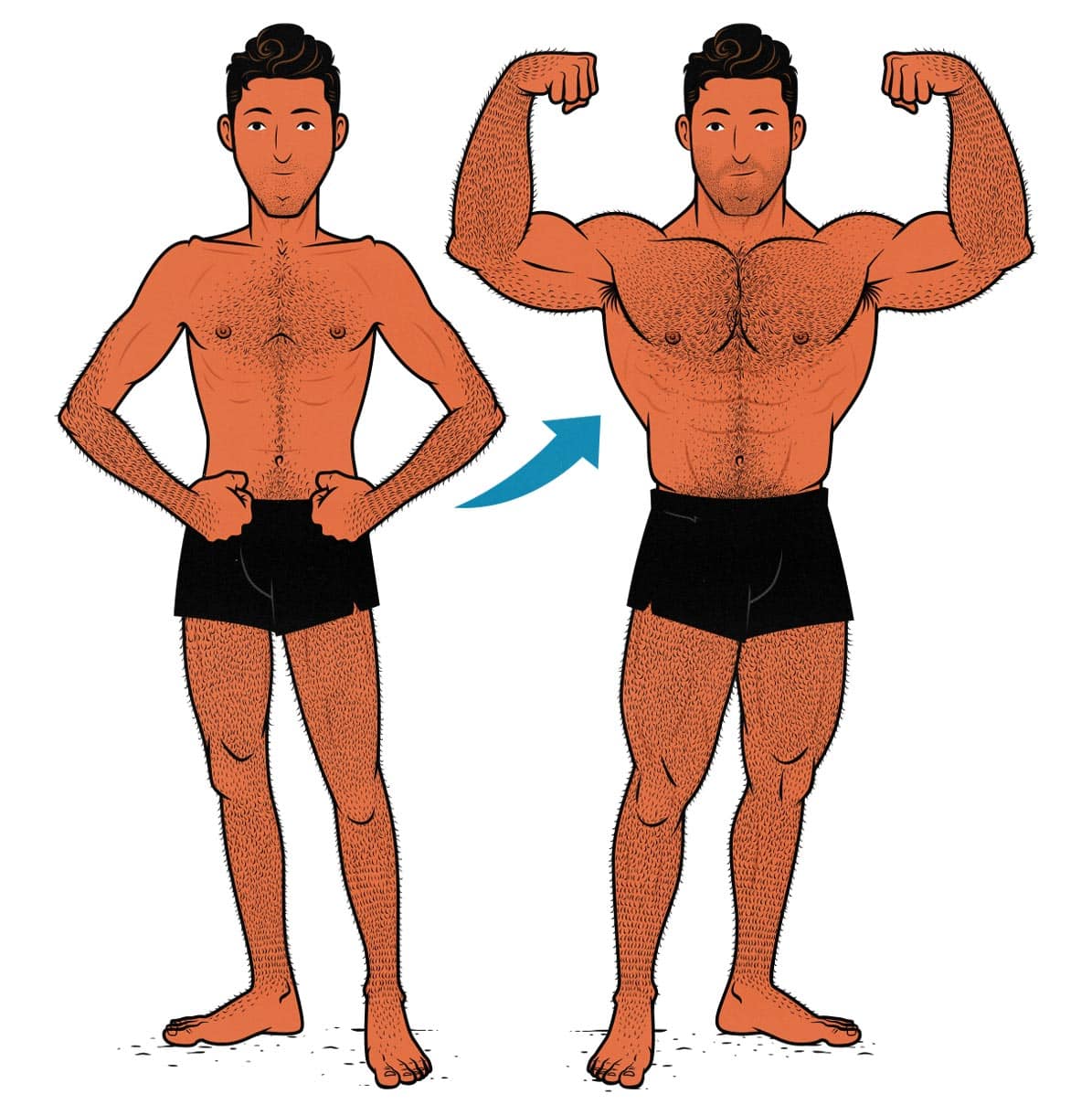
Do Skinny People Have Faster Metabolisms? Yes, Sometimes
There’s a common myth in the fitness industry that skinny people don’t have faster metabolisms, they just don’t eat as much food. According to this line of thinking, there’s no such thing as a fast or slow metabolism. Rather, your metabolism is determined by your height, age, weight, lean mass, exercise habits, and activity levels. There are two problems with this line of thinking.
First, those variables can result in huge changes in metabolic rate. For example, in a study published by Science, they found that a 180-pound person could burn anywhere from 1,400 to 5,700 calories per day (study).
Second, even if you account for every single one of those variables, metabolisms can still vary greatly between people. Even when living totally average lifestyles, naturally skinny people often have unusually fast metabolisms.
Let’s go over the research and implications. Then we can talk about how to gain weight and build muscle with a fast metabolism.

Metabolic Variance Calculator
Before we delve into the science, I made a quick calorie calculator that includes variations in metabolism. To make it, I looked at the standard deviation in a few metabolism studies (study, study, study). Then I factored that into the Cunningham Equation (which does a good job of accounting for variances in lean mass).
The calculator measures your resting metabolic rate: how many calories you burn while staying completely still. It shows that our baseline metabolisms can be quite different. As in, two people with the same body composition, eating the same diets, and doing the same things can have different calorie needs. Variations in diet (TEF), exercise habits (EAT), and activity levels (NEAT) would drive the disparity even wider.
The Metabolic Variance Wizard
RMR Calculator
People can have very different metabolisms, especially at the far reaches of the bell curve. If you’re unusually thin, as many of us are, it’s not unreasonable to think you have an unusually fast metabolism. If you have trouble gaining weight, even when trying to eat more food, as many of us do, that inkling becomes all the more reasonable.
Now, there’s no magic going on here. The calories are going somewhere. And I know where some of them are going.
Why Do Some People Burn More Calories?
Skinny People Have Greater Surface Areas
The first reason has to do with our surface area. Thinner people have more surface area per unit of mass. This gives us less insulation, meaning we need to spend more energy keeping our bodies warm.

This can be both an advantage and a disadvantage. On the bright side, we can get rid of extra heat more efficiently, keeping us from overheating as we journey across savannas and Saharas. On the dark side, we’re less equipped to weather the long nights of the cold north.
Skinny People Have More Expensive Lean Mass
You might have heard that muscle burns more calories than fat. That’s true. A pound of muscle burns around 6 calories per day at rest, whereas fat only burns around 2. If we factor in the energy it costs to carry that mass around, we’re looking at about 12 and 8 calories, respectively. I covered all the research on that here.
What you may not know is that our organs burn more calories than muscle. Your heart, lungs, kidneys, and liver burn around 10–20x more calories per pound per day than muscle (study). If you’re thin, a higher portion of your lean mass comes from your organs, causing you to burn more calories per pound of lean mass.
The best calorie calculators factor in lean mass and body-fat percentage, but they don’t factor in how muscular you are. Even the calculators that factor in height don’t do a great job of accounting for those differences (study).
Adaptive Thermogenesis
Adaptive thermogenesis is when your metabolism adapts to your energy needs (study). For example, when people try to lose weight, they eat fewer calories, so their metabolism adapts, slowing down. Some people call this “starvation mode.” It’s often exaggerated, but it’s real, at least in the way I’m explaining it here (study, study).
Your metabolism can adapt to a higher calorie intake, too. If you eat more calories than you need, your metabolism can speed up, burning away some of the surplus. This happens more to some people than others. So-called “hardgainers” have especially adaptive metabolisms (study).
The main way that your body adjusts its metabolism is by adjusting your activity levels (NEAT). People losing weight often become more sedentary, spending more time lounging. People gaining weight can become more energetic, spending more time pacing and fidgeting (study).
However, your resting metabolism can adapt, too (study). As you get deeper into a bulk, you may find you’re burning more calories, even if you aren’t moving more. When you compare your resting metabolism to someone who’s been trying to lose weight, there can be a large difference.
Genetic Differences Are A Thing
These are just three factors. I’m sure there are many more. Most human traits fall on a bell curve, and resting metabolic rate (RMR) is no exception. Just like height, weight, and other physical attributes, our resting metabolic rates seem to exhibit a normal distribution in the population, with the majority of people clustering around the mean and fewer at the extremes.
How to Bulk With A Fast Metabolism
I wrote an article on Outlift about how to gain weight with a fast metabolism. If you’re curious about how many calories you burn, it dives even deeper, covering lifestyle factors like activity levels. More importantly, it talks about what you can do to bulk up.
I also made a calorie calculator that adjusts for the factors discussed in this article. It’s a bulking calculator, so it lets you pick how quickly you want to gain weight, then recommends an appropriate calorie surplus for your goals. It’s not perfect—no calorie calculator is—but it will give you a great starting point.
The real trick is to weigh yourself every week and adjust your calorie intake accordingly. If you aren’t gaining weight, you aren’t in a calorie surplus, so you need to eat a little more food. It’s tough, I know, but it works tremendously well.

Conclusion
Most people burn a fairly normal number of calories at rest, explaining how this “you don’t have a fast metabolism” myth got such a fierce stranglehold on the fitness industry. But some people have much higher or lower metabolisms. If you feel like your metabolism is particularly fast, you may be right.
What’s neat is that as you bulk up, your surface area and lean mass will become more normal. I used to feel like I a lot for a 130-pound guy, whereas now I feel like I eat a normal amount for a 190-pound guy. I eat more now, but it lines up with my appetite and expectations. To my great surprise, it became much easier to eat enough food.
Alright, that’s it for now. If you want to learn about how to build muscle as a naturally thin person, we have a free newsletter. If you want a full muscle-building program, including a 5-month workout routine, a bulking diet guide, a gain-easy recipe book, and online coaching, check out our Bony to Beastly Bulking Program (for men) or our Bony to Bombshell Program (for women).


Muscle-Building Mini-Course via EMAIL
Sign up for our 5-part muscle-building mini-course that covers everything you need to know about:
Here are some related articles